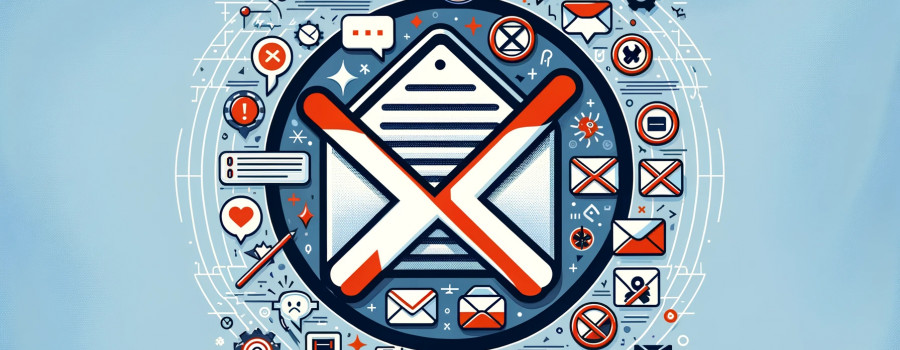10 things you should avoid doing in your emails

Emails are a common and important form of communication, but they can also be easily ignored or deleted if they are not well-crafted. In order to make sure your emails are read and acted upon, it's important to avoid certain mistakes that can turn off the recipient.
In this article, we'll look at the top 10 things you should avoid doing when sending an email. From using spammy words and phrases to using inappropriate or offensive language, these mistakes can make your email less effective and may even result in it being marked as spam. By understanding what to avoid, you can craft emails that are more likely to be read and acted upon. So, it is very important to consider these points while sending an email. Failing to put together a well crafted email could cause you all sorts of problems so whilst it's always a good idea to follow this guide you should also be closely tracking your SES bounces to know what happens once you hit send.
Don't use spammy words or phrases
Using spammy words or phrases in your subject line can trigger spam filters and increase the chances of your email being marked as spam. Some examples of spammy words include "free," "earn money," and "click here." It's important to avoid these words in your subject line to improve the chances of your email being delivered to the recipient's inbox.
Don't use all capital letters
Using all capital letters in your subject line can make it appear as though you are shouting and may turn off the recipient. It can also make the subject line harder to read, which can decrease the chances of the email being opened. Instead, try using sentence case or title case, which are easier to read and more professional.
Don't use too many exclamation points
Using too many exclamation points in your subject line can come across as spammy and may turn off the recipient. It's important to use exclamation points sparingly and only when they are warranted.
Don't use misleading or deceptive subject lines
Using misleading or deceptive subject lines can create a negative impression of your brand and decrease the chances of the email being opened. It's important to be honest and transparent in your subject lines and to accurately reflect the content of the email.
Don't use inappropriate or offensive language
Using inappropriate or offensive language in your subject line can be off-putting to the recipient and may result in the email being marked as spam. It's important to use language that is appropriate and respectful in your subject lines.
Don't forget to proofread
Forgetting to proofread your subject line can result in typos and grammatical errors, which can make your email look unprofessional and decrease the chances of it being opened. It's important to proofread your subject line before sending the email to ensure that it is error-free.
Don't use personalization tags incorrectly
Using personalization tags incorrectly can result in awkward or irrelevant subject lines that may turn off the recipient. It's important to use personalization tags correctly and only include information that is relevant and appropriate for the recipient.
Don't use overly promotional language
Using overly promotional language in your subject line can come across as spammy and may turn off the recipient. It's important to strike a balance and use language that is informative and relevant, rather than overly promotional.
Don't use vague or unspecific subject lines
Using vague or unspecific subject lines can make it difficult for the recipient to understand the content of the email and may decrease the chances of it being opened. It's important to be clear and specific in your subject lines to give the recipient a sense of what to expect in the email.
Don't ignore the importance of the subject line
Ignoring the importance of the subject line can result in emails that are ignored or deleted by the recipient. It's important to give the subject line the time and attention it deserves and to craft a subject line that is compelling and informative.
